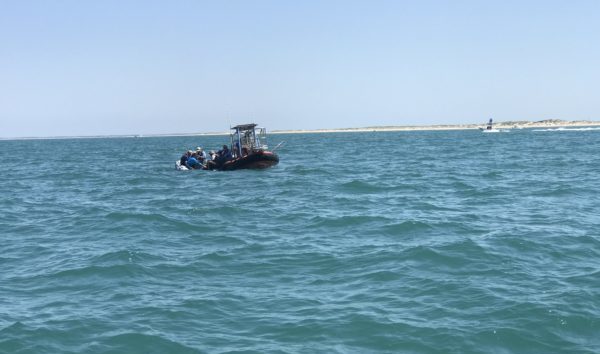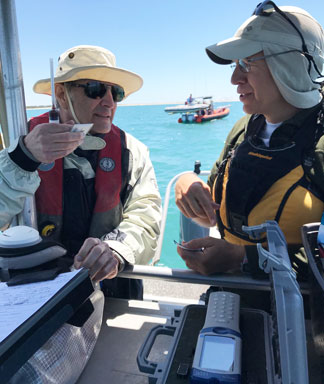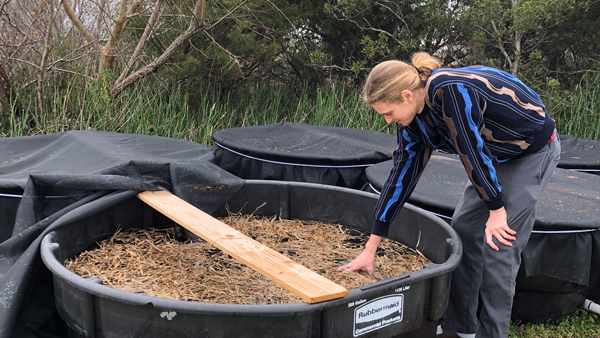CMAST and NOAA Study Leatherback Sea Turtle for Protected Species Program

The Marine Health Program at NC State Center for Marine Sciences and Technology (CMAST) recently took part in 10 days of field work off the North Carolina coast to study leatherback sea turtle (Dermochelys coriacea) migratory patterns, movements, and health status.
This is the second year of the project, working with NOAA Fisheries researchers in the Atlantic Marine Assessment Program for Protected Species (AMAPPS).
Leatherback sea turtles weighing approximately 500 – 750 pounds were captured at sea off of Cape Lookout, using hoop nets deployed from small boats guided by an overhead spotter plane. Turtles spent about 15 minutes on an inflatable platform being measured and tagged (satellite, flipper, and microchip), having blood drawn (hematology, plasma chemistry analysis, blood gases, and NMR metabolomics), temperature recorded (leatherback sea turtles maintain an internal temperature warmer than their environment), fat thickness determined by ultrasound, and electrocardiogram (ECG) monitored. Thirteen turtles were captured this year, adding to the seven tagged and sampled last year.

Most of the turtles appeared to be in excellent health, and there were abundant cannonball jellies (Stomolophus meleagris) in the area as a food source, but one turtle had sustained recent (healing) propeller wounds on its shell, and another had a small recreational fishing hook and monofilament line that was removed from a flipper by the researchers.
Veterinary team members from NC State CVM CMAST and the NC Aquariums included Craig Harms, Michael Stoskopf, Emily Christiansen, Greg Scott, Heather Broadhurst, and Maria Serrano. Collaborators include Larisa Avens, Chris Sasso, Joanne Braun-McNeill, Annie Gorgone, Blake Price, Jamie Clark and Josh Summers of the NOAA Southeast Fisheries Science Center; Heather Haas, Eric Matzen from the NOAA Northeast Fisheries Science Center; and Samir Patel from the Coonamessett Farm Foundation.
- Categories:
